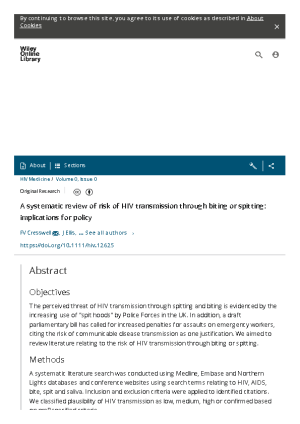A systematic review of risk of HIV transmission through biting or spitting: implications for policy
A systematic literature search was conducted using Medline, Embase and Northern Lights databases and conference websites. Results showed that there was no risk of transmitting HIV through spitting, and the risk through biting was negligible. Post‐exposure prophylaxis was not indicated after a bite in all but exceptional circumstances. Policies to protect emergency workers should be developed with this evidence in mind.
